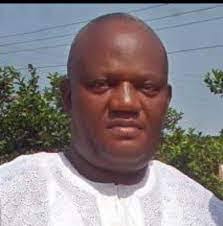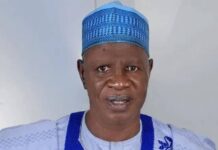Owa Obokun: Heritage, reality, aspiration (2), by Abiodun Komolafe
Ijesas are distinctive! They are known for their discerning nature and exceptional brilliance. Their rich history reveals fascinating connections. For the record, they are the masterminds behind Osomaalo, a pioneering business phenomenon in Africa. Ijesaland is credited with originating the iconic ‘Nwa Boy’ style, now a multibillion-dollar industry in Igboland. Ijesas are found to have excelled in various sectors; and this has gone a long way in demonstrating their versatility. In the 1930s, Obafemi Awolowo, the legendary statesman, once resided in Ilesa as Secretary to Daniel Ajayi Afilaka. At a time in the history of Ijesaland, Olori Remilekun Anike Agunlejika, wife of Oba Adeniran Agunlejika, also held the esteemed title of Yeye Oge of Edeland.
During the mid-20th century, Ilesa earned the nickname ‘New York’ of the Southwest reflecting its economic and cultural prowess. However, 42 years on, Ijesalands development trajectory raises questions: How did Ijesa Heartland sink to this deplorable state and what transformational impact has four decades played had, and where does the region stand today in terms of progress? When did the abnormal become the norm, and what pivotal moment marked the beginning of our collective struggles as a people and kingdom? At what stage did Ijesaland bid farewell to tradition that news about Owa Obokuns demise could be broken without beckoning to the deity of tradition?
READ ALSO: Owa Obokun: Heritage, reality, aspiration (1), by Abiodun Komolafe
Given Ijesa tradition’s emphasis on procedure, when did the revered rites of passage for a departed monarch devolve into a spectacle, casually shared on social media platforms? How can Owas subjects, renowned for their adventurous spirit and fearlessness in the face of distance and unfamiliar customs, build upon their ancestral legacy of entrepreneurship? Can they break free from the cycle of repetition and expect transformative progress, or will they continue to yield the same results?
As we ponder the future of the Owa Obokun of Ijesaland, tradition and progress engage in a delicate dance. Will the Bilaro-Oluodo Ruling House claim the throne, or will leadership qualities trump lineage? Considering the geographical and socio-economic diversity within the Ijesa Kingdom, will unity and progress be sacrificed at the altar of cultural heritage? Will the kingmakers maintain their oversight role, or will new checks and balances be established? Considering the age-old tension between tradition and innovation, what mechanisms will be put in place to ensure accountability and transparency in the new Owa Obokun’s reign?
Yes, our forefathers believed in Ifa Oracle because thats who we were; and thats who we still are! But then, this paradox raises fundamental questions: Had our colonizers genuinely embraced the teachings of their sacred texts, would they have condemned us to centuries of bondage? What happens when religious dogma is hijacked to justify oppression and when does the sanctity of human life supersede economic interests? Can we truly speak of progress when built upon the ruins of others? As we grapple with systemic injustices, should we forget the profound lessons of our shared human history – that freedom is not free, and that true faith demands action, not mere rhetoric?
Traditionally, members of the four Ruling Houses in Ilesa are considered Owa’s cousins, implying a sense of familial closeness and trust. Ideally, this kinship should grant the Owa unrestricted access to any of the Ruling Houses without fear or hesitation. Given their shared ancestry as descendants of Atakumosa, when did the princes and princesses of the Ruling Houses last convene? Oba Aromolaran’s decision to use the palace primarily as an office during his reign deviated from Ijesaland’s traditional norms. This departure may have contributed to challenges in his relationship with the chiefs, highlighting the importance of balancing modern approaches with cultural heritage.
The Yoruba proverb ‘Bi ile ba san bi o san, awo la n wo. reminds us that a peaceful home earns respect from outsiders. Unfortunately, Ijesaland is currently grappling with significant challenges. The children of Oduduwa are struggling, and this struggle is evident to all. To move forward, we must strike a balance between our aspirations and available resources, ensuring our ambitions align with our capabilities. I am particularly concerned that when leadership roles are filled by individuals who don’t embody our values, harmful influences can spread, compromising our community’s well-being. In such an environment, instability hinders progress and development, ultimately undermining Ijesaland’s potential.
The revered League of ‘Agba Ijesa’, once a shining example of excellence, has faced challenges in maintaining its high standards. The shift in focus towards material wealth as a primary criterion for membership has diluted its original purpose. Ideally, the League should represent men of integrity, humility, discipline, and impeccable character. Nonetheless, when financial influence becomes a dominant factor, the institution’s integrity is compromised. This development has contributed to the erosion of Ijesaland’s values, undermining the kingdom’s progress and stability.
Some Nigerians have noted that Oba Aromolaran’s academic background often influenced his approach to cultural and traditional matters. While his theoretical perspective brought unique insights, it sometimes led to misunderstandings, such as the dispute with the Ijesa North Traditional Council. Francis Adedeji Bepo and Isaac Ojo Ajanakus notable places in history are especially noteworthy in this context. To move forward, it’s essential for future leaders to strike a balance between theoretical knowledge and practical experience.
“Ti ogiri o ba lanu, alangba o le raye woo. (If there are no crevices in the wall, the lizard cannot penetrate into the wall). That Owa Obokun stool is a monumental responsibility is not in doubt. As Haastrup aptly puts it, “Owaship is a heavy load, a complex issue that requires thorough understanding to avoid regret. Adeoye Agunlejika also summarizes the significance of the stool: Owa Obokun is the pivot around which Ijesaland revolves. Virtually every aspect of life in Ijesaland is influenced by him, as he determines the course of many things. Moreover, he bears the weight of his people’s destiny on his shoulders. Simply put, if the Owa Obokun falters, Ijesaland falters.
Oriyomi Akerele, a member of the Ajimoko Royal Family, stresses that traditional leadership has evolved beyond heritage and prestige. “Today, it’s about tapping into community potential to drive development, growth, and prosperity.” He identifies several pressing issues in Ijesaland, including insecurity, cultism, inadequate education (particularly vocational and life skills), and health and hygiene challenges.
Effective leadership transcends academic credentials a plethora of PhDs or Master’s degrees in Law, Engineering, or Philosophy. Instead, it requires innate intelligence, people skills, and emotional intelligence. Traditional leadership, like Obaship, is honed through community interaction and immersion, not university courses. As exemplified by Owa Agunlejika and Oba Olajide Oyekanmi Adanlawo IV, the Ogboni of Ibokun (1970-2010), a successful Owa Obokun must connect with both chiefs and subjects. Impliedly, the next Owa Obokun should possess key qualities: humility, accommodation, tolerance, active listening, and meaningful engagement. He must be willing to learn from his people, understand their needs, and empathize with them.
“Ile la ti n ko eso re ode (Charity begins at home). To effectively unite the Yoruba race, Ijesaland must first address its internal dynamics. In other words, “Olofin’s children with Alaafin as the eldest and Obokun as the youngest must resolve their familial relationships before focusing on broader unity. Unity would enable Ijesaland Obas to present a united front, even to presidential candidates.” By resolving their internal dynamics and presenting a united front, they can build a brighter future for their people and contribute to the advancement of the Yoruba nation.
To be concluded.
KOMOLAFE wrote in from Ijebu-Jesa, Osun State, Nigeria (ijebujesa@yahoo.co.uk)
Follow the Neptune Prime channel on WhatsApp:
Do you have breaking news, interview request, opinion, suggestion, or want your event covered? Email us at neptuneprime2233@gmail.com






